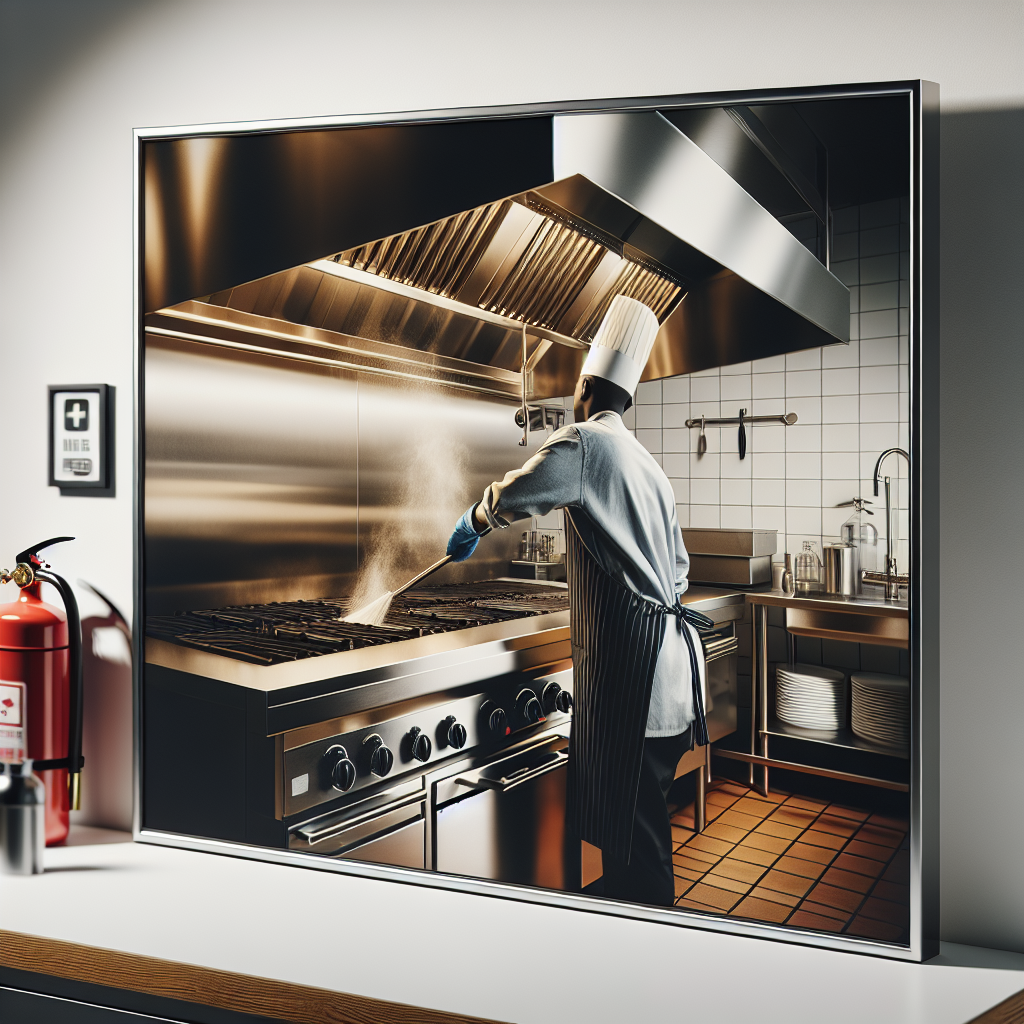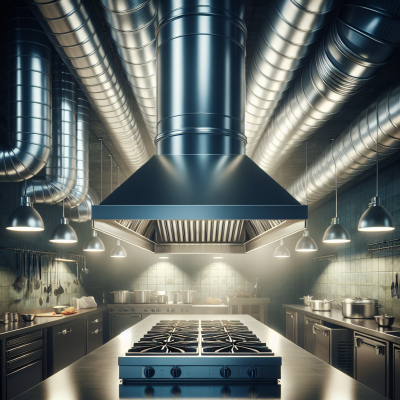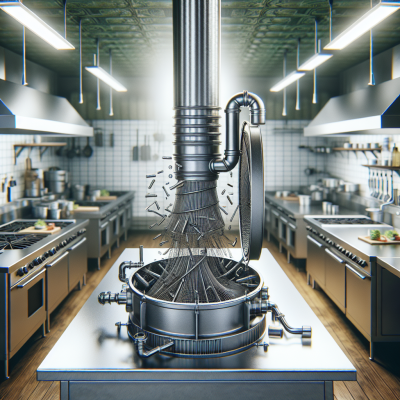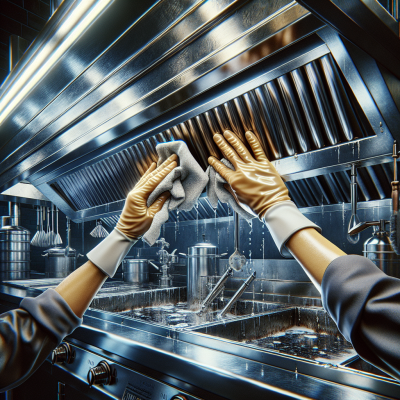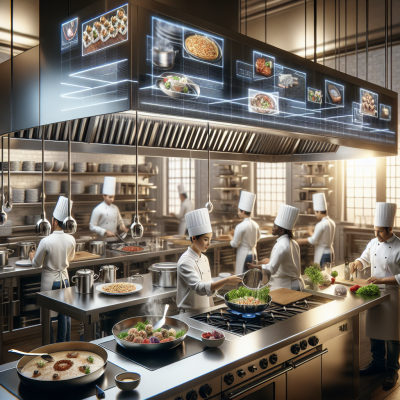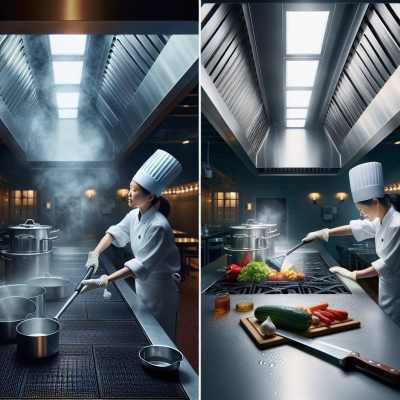Introduction to Hood Cleaning and Emergency Preparedness
Let’s face it: owning and managing a restaurant is no cakewalk. Beyond the stress of creating a mouth-watering menu and ensuring customer satisfaction, there’s a plethora of behind-the-scenes tasks that keep your establishment running smoothly. One of these crucial yet often overlooked chores is hood cleaning. Not only is it mandatory for health and safety guidelines, but it’s also an integral part of a restaurant’s emergency preparedness plan. Yes, you read that right! Hood cleaning can be a safety net that keeps your restaurant safe and operational, especially in the bustling environment of a commercial kitchen in Charlotte.
Why Hood Cleaning is Crucial
A clean hood is more than just a shiny metal appliance above your stove. It plays a key role in ensuring the safety and efficiency of your kitchen. The hood, duct, and exhaust system accumulate grease, grime, and other residue over time. If left unchecked, this build-up becomes a ticking time bomb, posing significant risks such as:
- Fire Hazards: Grease is highly flammable. The accumulation of grease in your exhaust hood can ignite and cause a fire, endangering lives and property.
- Health Code Violations: A dirty hood can result in fines and possible closure if health inspectors decide your kitchen doesn’t meet sanitary standards.
- Poor Air Quality: Grease and residue can compromise the air quality, making it uncomfortable and unsafe for your staff.
The Role of Hood Cleaning in Emergency Preparedness
So how does restaurant hood cleaning tie into emergency preparedness? Let’s explore some ways:
1. Fire Safety
The most significant benefit of regular commercial kitchen hood cleaning is fire prevention. Accumulated grease and oils can act as fuel if they catch fire. Routine cleaning reduces this risk substantially, effectively preventing a potential catastrophe.
2. Compliance and Avoiding Penalties
Compliance with local Charlotte fire and health codes is essential to avoid fines and potential shutdowns. Regular exhaust hood cleaning ensures your kitchen meets all necessary guidelines. Fewer violations mean fewer interruptions to your business operations.
3. Enhanced Air Quality
Clean hoods and ducts improve the air quality in your kitchen, making it a safer and healthier environment for your employees. This can reduce staff sickness and improve overall productivity, lessening the chances of staffing issues during emergencies.
4. Equipment Longevity
Regular maintenance, including the thorough cleaning of your kitchen equipment, promotes longevity. Clean equipment operates more efficiently, reducing the likelihood of mechanical failures during peak business hours or critical times.
Steps to Incorporate Hood Cleaning into Your Emergency Preparedness Plan
Now that you know the importance of hood cleaning in emergency preparedness, let’s break down how you can incorporate it into your plan:
Create a Cleaning Schedule
Establish a regular cleaning schedule based on the volume of cooking in your kitchen. High-volume kitchens may require monthly cleanings, while lower-volume establishments might get by with bi-monthly or quarterly cleanings.
Hire Professional Services
While daily wiping and cleaning can be handled in-house, deep cleaning should be left to professionals. Hiring a professional hood cleaning service ensures that every nook and cranny is spotless and up to code.
Employee Training
Train your employees to recognize signs that the hood and exhaust system need cleaning. Awareness can prompt timely actions and prevent potential hazards before they escalate.
Document and Review
Keep detailed records of all cleaning activities and inspections. Regularly review these records to ensure compliance and identify any recurring issues that need addressing.
Emergency Protocols
Develop clear emergency protocols that include steps to follow in case of a kitchen fire. These should be reviewed and practiced regularly to ensure everyone knows their role and can act swiftly.
Additional Tips for Emergency Preparedness in Restaurants
While hood cleaning is a crucial part of your emergency preparedness plan, it should be complemented with other measures:
- Fire Suppression Systems: Ensure your kitchen is equipped with an adequate fire suppression system that is regularly maintained.
- Emergency Lighting and Exits: Make sure all emergency exits are clearly marked and not obstructed. Emergency lighting should be functional and tested regularly.
- First Aid Kits: Keep first aid kits readily accessible and make sure they are well-stocked.
- Employee Training: Regularly train and update your staff on emergency procedures, including fire drills and first aid.
Conclusion
Incorporating hood cleaning into your restaurant’s emergency preparedness plan is not just a good idea; it’s a necessity. By ensuring that your exhaust hood cleaning is part of routine maintenance, you are taking a proactive step towards safeguarding your business, protecting your employees, and ensuring the well-being of your patrons. For restaurant hood cleaning, trust professionals who understand the intricacies of commercial kitchen maintenance and who can help you stay compliant, efficient, and most importantly, safe.
For more information on how to integrate commercial kitchen hood cleaning into your emergency preparedness plan, visit us today.


